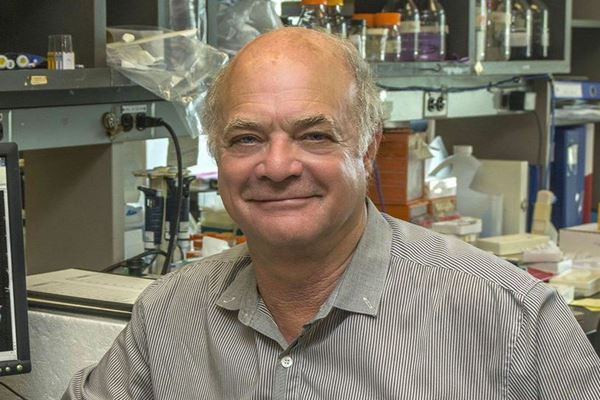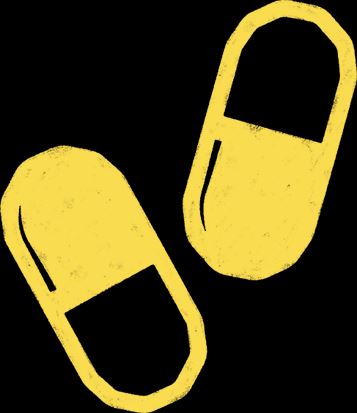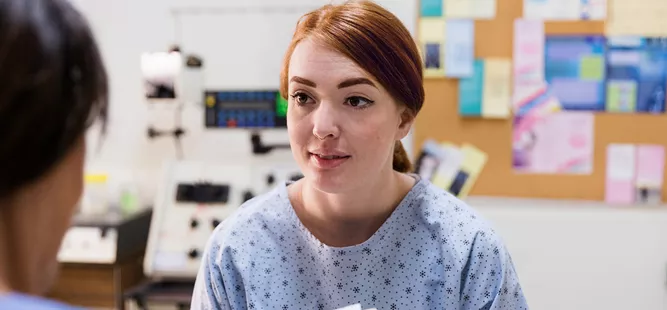New hope that an old drug could be reused to treat triple negative breast cancer
10th November 2020
Researchers funded by your kindness and generosity have found that a commonly used chemotherapy drug could be effective against an aggressive form of breast cancer called triple negative breast cancer (TNBC).
2.2m
The number of people worldwide diagnosed with breast cancer in 2020.
15-20%
More than 15 out of 100 people with breast cancer will be diagnosed with triple negative breast cancer.
TNBC is often more aggressive and harder to treat than other forms of breast cancer. It is estimated that the likelihood a person with advanced TNBC will survive for 5 years or more after their diagnosis is half that of people with less aggressive types of breast cancer.
But there could be new hope for the future, thanks to your support.
Professor Robert Kerbel and his team based in Toronto, Canada, have discovered a treatment approach that could lead to a more effective way to treat TNBC with the commonly used and inexpensive chemotherapy drug cyclophosphamide.
Cyclophosphamide is a well-known chemotherapy drug that has been shown to work well in lower doses when given metronomically (continuously over a long time and relatively low doses) to children with a rare cancer called rhabdomyosarcoma. Building on this knowledge, the researchers tested different ways of administering this drug to mice with TNBC.
They found that giving cyclophosphamide metronomically at low doses was more effective at slowing tumour growth compared to conventional treatment schedules that use higher doses of the drug or continuous low doses. This suggests that metronomic, low dose chemotherapy may be a better way to treat people with TNBC.

Until recently, treatment for TNBC in the UK has been limited to non-targeted approaches such as chemotherapy, radiation and surgery, but new drugs and combination therapies are currently under review.
Professor Kerbel and his team hope that this new method of using a well-established chemotherapy drug could one day provide a kinder treatment option that could reduce the severity of side effects.
And although their approach has only been tested in mice so far, the team are optimistic that their findings could pave the way for a successful new treatment for this aggressive type of cancer. Exciting new discoveries like this could not happen without you.
Dr Kabir Khan, who worked on the study, said of the discovery:
“The good news is that cyclophosphamide was remarkably effective on its own, much more than when given in the conventional maximum tolerated dose fashion. And the benefit of using drugs such as cyclophosphamide is that they have already been approved for use as treatments for cancer patients.”
Professor Kerbel and his team are now planning to test other combinations of low dose chemotherapy that could improve the effect of immunotherapy in TNBC.
Why the drugs don’t work for TNBC
Triple negative breast cancers are missing three key molecules - oestrogen receptors (ER), progesterone receptors (PR) and human epidermal growth factor 2 (HER2) receptors. Whereas breast cancers that have these molecules can often be treated with drugs such as tamoxifen and Herceptin, patients with TNBC lack targeted treatment options. Your generosity and kindness allows our scientists to continue searching for new cures to save lives in the future.
Donate
Further reading

New drug could become one of the first targeted treatments for triple-negative breast cancer
Dr Najoua Lalaoui, a scientist at the Walter & Eliza Hall Institute of Medical Research in Australia, has been studying a new drug called birinapant. A drug which her research is showing could become one of the first targeted treatments for triple-negative breast cancer.
06 July 2020

New discovery paves the way for better diagnosis and treatment of breast cancer
Scientists in France have discovered how the tissue surrounding breast cancer tumours can prevent immune cells from reaching and destroying cancer cells.
22 June 2021

What do we still not know about breast cancer?
Breast cancer is the second most common cancer in the world. We all have breast tissue, so it can affect anybody, but it is most common in women. Thanks to research, more people are surviving breast cancer than ever before, but it is still the leading cause of cancer death in under 50s and there are still far too many lives being cut short by the disease. Our researchers are asking the challenging questions that need answers to start new cures for breast cancer and help save lives, everywhere. Find out more.
08 April 2024
